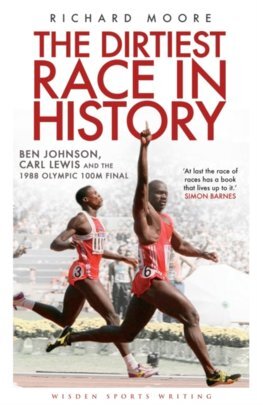The Dirtiest Race in History
Knihu kúpite v
1 e-shope
od
17,05 €
Panta Rhei
17,05 €
Skladom
(dodanie do 3 dní)
Krátky popis
'A captivating and detailed account ... it reads like a thriller,
which is exactly the right tone to adopt by author Richard Moore
for a story dripping with skulduggery and intrigue ... compelling'
The Sunday ExpressThe 1988 Seoul Olympics played host to what has
been described by some as the dirtiest race of all time, by others
as the greatest.The final of the men's 100 metres at those Olympics
is certainly the most infamous in the history of athletics, and
more indelibly etched into the consciousness of the sport, the
Olympics, and a global audience of millions, than any other
athletics event before or since. Ben Johnson's world-record time of
9.79 seconds - as thrilling as it was - was the beginning rather
than the end of the story. Following the race, Johnson tested
positive, news that generated as many - if not more - shockwaves as
his fastest ever run.He was stripped of the title, Lewis was
awarded the gold medal, Linford Christie the silver and Calvin
Smith the bronze. More than two decades on, the story still hadn't
ended. In 1999 Lewis was named Sportsman of the Century by the IOC,
and Olympian of the Century by Sports Illustrated.Yet his
reputation was damaged by revelations that he too used
performance-enhancing drugs, and tested positive prior to the Seoul
Olympics. Christie also tested positive in Seoul but his
explanation, that the banned substance had been in ginseng tea, was
accepted. Smith, now a lecturer in English literature at a Florida
university, was the only athlete in the top five whose reputation
remains unblemished - the others all tested positive at some stage
in their careers.Containing remarkable new revelations, this book
uses witness interviews - with Johnson, Lewis and Smith among
others - to reconstruct the build-up to the race, the race itself,
and the fallout when news of Johnson's positive test broke and he
was forced into hiding. It also examines the rivalry of the two
favourites going into it, and puts the race in a historical
context, examining its continuing relevance on the sport today,
where every new record elicits scepticism.

